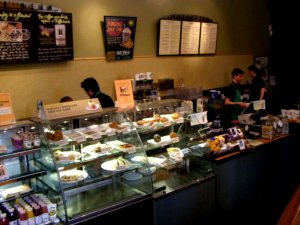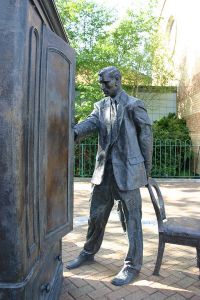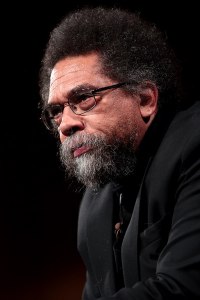
Over coffee at Starbucks following the 2018 American mid-term election, a psychiatrist observed an epidemic of stress among his patients, regardless of their political leanings. They’re like inexperienced swimmers doing the doggie paddle in a tsunami.
The tension, the angry tone, the incivility, the name-calling, the smirks, the mocking impersonations, the barrage of lies and twisted truth are leading many of us to Sigmund or Anna Freud’s couch. Or to a fifth. Or pills. And to acts of verbal or physical violence of our own. We’re brawling in America and we wonder how we got here.
Sigmund and Anna Freud, Carl Jung, Alfred Adler and today’s practitioners of therapy know something about stress. So do the wisdom traditions of religion — the Tao that bridges the differences that divide us. It is this deeper sense of the Tao that is the source of human goodness. The Tao (Way) of Judaism, Christianity, Islam, Hinduism, and Buddhism guides individuals, cultures, and nations to flourish across all the walls we erect to separate us from each other.

In his The Abolition of Man, C.S. Lewis, to whom Ross Wilson‘s statue pays tribute, wrote that without the perspective of the Tao, which calls us to something more than brute emotion, “…the world of facts, without one trace of value, and the world of feelings without one trace of truth or falsehood, justice or injustice, confront one another, and no rapprochement is possible.”
Today in America, emotions are displacing the Tao. Narcissim and nihilism increasingly divide us into what Lewis called “trousered apes” and “urbane blockheads” who call each other names from different sides of a dividing wall. Like Lewis in his time and place, public philosopher-theologian Cornel West identifies nihilism as the plague let loose in America in his book Race Matters. “Nihilism is a natural consequence of a culture (or civilization) ruled and regulated by categories that mask manipulation, mastery and domination of peoples and nature.

Cornel West photo by Gage Skidmore
“We need … the courage to be impatient with evil and patient with people, the courage to fight for social justice. In many instances we will be stepping out on nothing, and just hoping to land on something. But that’s the struggle. To live is to wrestle with despair, yet never allow despair to have the last word.”
When the common ground binding a society together is shopping, we step out on nothing, just hoping to land on something. Everything is up for grabs. A culture which turns its back on a spiritual-moral compass we didn’t make up, and that connects us to something greater than oneself, soon leaves its people flailing in an emotional and cognitive tusanami.
“We [America]are at a crucial crossroad in the history of this nation–and we either hang together by combating these forces that divide and degrade us or we hang separately,” says West. “Do we have the intelligence, humor, imagination, courage, tolerance, love, respect, and will to meet the challenge? Time will tell. None of us alone can save the nation or world. But each of us can make a positive difference if we commit ourselves to do so.”
The therapist’s couch in my friend’s office will never be empty. Some stress is part of life. But is it too much to hope that his clients may go there in sesarch of the Tao hidden beneath the false choice of being a trousered ape or an urbane blockhead, less patient with evil and more patient with people to meet the challenge of our time?
— Gordon C. Stewart, Chaska, MN, November

